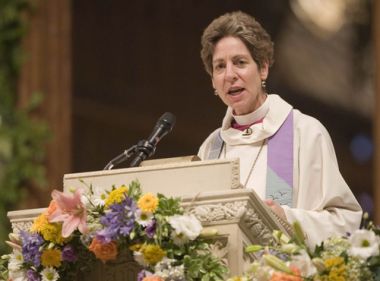Gender roles: Is complementarianism on the wane in the US?

The so-called 'complementarian' movement in gender relations may have received a knock-back with the decision by a Baptist university to join an organisation advocating equal authority and leadership roles for men and women.
According to Baptist Press, Campbellsville University in Kentucky – formerly affiliated to the Southern Baptist Convention, which teaches that "While both men and women are gifted for service in the church, the office of pastor is limited to men as qualified by Scripture" – has joined the Christians for Biblical Equality (CBE) organisation.
Campbellsville also hosted the inaugural CBE lectures in September.
The university switched its allegiance from the SBC-affiliated Kentucky Baptist Convention to the American Baptist Churches in Indiana and Kentucky last year.
KBC executive director Paul Chitwood told Baptist Press that CBE "rewrites the Bible's teaching". He said: "My greatest concern for Campbellsville is that the Bible has stopped being the final authority and is being replaced with human wisdom. That isn't a good foundation for a Baptist education."
CBE President Mimi Haddad told Baptist Press: "Throughout Scripture, women exhibit spiritual, legal and political leadership despite able men, in their communities, whom God could have used."
In spite of the defection of Campbellsville to the egalitarian cause, Baptist Press cites claims that complementarianism is growing among US evangelicals. It is taught in the Southern Baptist Convention's six seminaries, leading to large numbers of younger ministers adopting it.
Owen Strachan, president of the Council on Biblical Manhood and Womanhood, told Baptist Press: "The sea change at the SBC seminaries alone has meant a major uptick in the representation and reception of the complementarian position at numerous schools. If you consider the major numerical presence of M.Div. students at Southern, Southeastern, Southwestern [seminaries], and the surging enrollment of Midwestern, you recognize that a large percentage of all ministers-in-training are at unflinchingly complementarian institutions."
Strachan said he was "thrilled by the growth of complementarian conviction among evangelical scholars and pastor-theologians over the last thirty years".
He also said that denying distinct gender roles in the home and at church "sets you up for theological and spiritual disaster".
"Every figure, church and denomination that has publicly endorsed homosexuality - 'gay Christianity' - and transgenderism has without exception been egalitarian," he said. "This does not mean that every egalitarian endorses these sins, but it does mean that embracing egalitarianism puts you in tension."
Haddad said the suggestion that American cultural values consistently align with egalitarianism was wrong. She told Baptist Press that equating popular culture and egalitarianism "makes unfair comparisons between all egalitarians and Western culture as a whole".
Both egalitarian and complementarian Christians often stand for biblical truth and against the tide of culture on many issues, she said.











